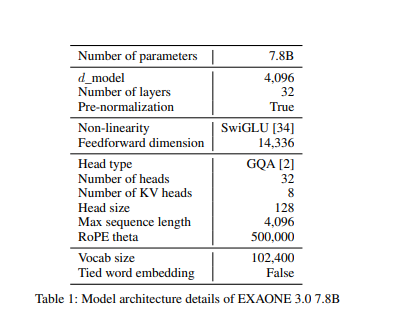recently LG The AI research department announced the launch ofSouth KoreaThe first open source artificial intelligence modelExaone3.0, a model with 7.8 billion parameters that performs well in Korean and English tasks, aims to accelerate AI research and build a strong AI ecosystem for South Korea.

LG has always been famous for its consumer electronics, and this strategic transformation shows that it hopes to gain a foothold in the field of AI innovation. By open-sourcing Exaone 3.0, LG not only demonstrates its technological strength, but also may open up new sources of revenue for cloud computing and AI services.
Exaone3.0 was released at a time when global AI competition is intensifying. Its competitors include open source AI models such as Qwen from Alibaba in China and Falcon from the United Arab Emirates. Qwen received a major update in June and now has more than 90,000 enterprise customers. It has performed well on platforms such as Hugging Face, surpassing Meta's Llama3.1 and Microsoft's Phi-3. And Falcon2 from the United Arab Emirates claims to have outperformed Meta's Llama3 in multiple benchmarks.
LG's open strategy is similar to that of Chinese companies such as Alibaba, which are also using open source AI to drive growth and commercialization of their cloud businesses. By providing a strong open source model, LG hopes to attract developers and enterprises to build applications on its platform, thereby driving widespread adoption of its AI and cloud infrastructure.
In terms of performance, LG claims that Exaone3.0 reduces inference time by 56%, memory usage by 35%, and operating costs by 72%, which are critical improvements in the highly competitive AI market. The model has been trained on 60 million pieces of professional data (covering patents, codes, mathematics, chemistry, etc.), and plans to expand to 100 million pieces of data within the year, indicating LG's determination to build a versatile and powerful AI system.
The success of Exaone 3.0 may change the landscape of the AI market, bringing diversified AI and cloud service revenue to LG, while also allowing South Korea to make a voice on the global AI stage. The popularity of open source code will also make advanced AI technology more popular and promote innovation in various industries and regions.
In the coming months, the impact of Exaone 3.0 will be reflected not only in its technical specifications, but also in whether it can inspire developers, researchers and companies to jointly utilize its capabilities to form a thriving ecosystem.
Paper address: https://arxiv.org/pdf/2408.03541